
This post is adapted from opening remarks made by Alliance CEO Laura Lott at “Don’t Raid the Cookie Jar: Creating Early Interventions to Prevent Deaccessioning Crises,” a convening held December 14-15, 2017 in Cambridge, MA, and organized in partnership with the Association of Art Museum Directors, the American Association for State and Local History, the Association for Academic Museums and Galleries, and the New England Museum Association. A link to a summary of the discussions at this convening can be found here.

One of the most fundamental and long-standing principles of the museum field is that a collection is held in the public trust and must not be treated as a disposable financial asset. This is well known to everyone in the museum field, and you’ll find it stated clearly in the Alliance’s code of ethics and standards, along with those of AAMD and other groups.
But for purposes of the workshop “Don’t Raid the Cookie Jar,” we asked everyone to forget that fact.
Because clearly, having standards and position statements on ethics and best practices alone does not solve the challenges museums face in balancing financial sustainability, collections care, and the public trust. Situations regularly arise where museums do sell, or propose to sell, collections to meet financial needs, or feel pressured by their parent organization (such as a university) to take such actions. The Alliance’s recent Museum Board Leadership report indicates that 1/3 of museums dipped into endowment or reserve funds last year to cover operating expenses. How many of those are—or will soon contemplate—monetizing their collections next? And what happens when the collections, too, are depleted?
Often my colleagues and I at the Alliance find out about a museum’s crisis or decision to deaccession collections for operating funds at the eleventh hour. That notification often comes in the form of a letter or phone call from a member of the media, a politician, lawyer, or member of the community. And it’s too late for AAM to really help.
Often the person wants to know “What are we going to do about it?” As in, how are we going to punish the institution in question? That’s not productive or helpful—and certainly not representative of what the Alliance is all about…advocating for the cause of museums and nurturing excellence in museum practice.
What we would like to be able to say is that we can help connect museums with a broad suite of support services to help them work through these situations in a thoughtful way that gives appropriate weight to the standards and long-term sustainability of the field. Services such as advocacy with local officials to get the support they need, and financial strategy assistance.
But we only get to offer that kind of help if we’re involved much earlier, and if there’s a set of those crisis-oriented resources, experts, and advocates at the ready.
The solutions to these issues are never easy or one-size-fits-all. There is no silver bullet. Museums that have gone to the brink of financial crisis and yet avoided monetizing their collections have worked hard, made tough decisions, and persevered for years to get on a financially sustainable path. Even illuminating their stories might be an inspirational and practical resource for struggling museums trying to do “the right thing.”
To avoid the temptation of what Stephen Weil called the “deaccession cookie jar,” museum leaders need time—lots of time. More time than they may think they have—to look strategically at their institution’s mission, their financial base, their costs and revenues, and lots of other factors. And they also need a safe space where they can admit when they’re stumped and discreetly ask for help without losing face in the public arena.
We hope that “Don’t Raid the Cookie Jar” serves as a first step and fills a gap in the large number of conversations taking place about deaccessioning and use of funds.
The majority of these discussions continue to focus on legal and ethical issues: what museums can do, what they should do, how the field should respond if the current standards are violated, and whether the standards need to be modified, or waived in certain circumstances.
These are all important conversations, and they will continue on many fronts. But they are not the conversations we engaged in at our convening Cambridge last December.
Our work in Cambridge was to strategize about what we can do as individuals, organizations, associations and as a field to help give museums the time and space and assistance of various sorts that supports thoughtful decision-making that will secure the long-term well-being of the institution and of the field.
One of our two goals for the convening was to begin to figure out what kind of early warning system might help surface incipient financial crises early enough that practical alternatives can be explored. Our second goal was to envision what we – the museum field – could offer to fellow museums during times of financial stress to promote solid, ethical decision-making.
My colleagues and I at the Alliance know that we can’t and shouldn’t tackle these challenges alone; this needs to be a collaborative effort with our sister associations and with our members. We were pleased to be in partnership with American Association for State and Local History (AASLH), Association of Art Museum Directors (AAMD), Association of Academic Museums and Galleries (AAMG), and New England Museum Association (NEMA), to be hosted by the Harvard Museums of Science and Culture, and to welcome members of the AAM Accreditation Commission and Professional Network Council. And we’re grateful for the dedication of 40+ museum professionals who gave selflessly of their time, creativity, and expertise to help us explore these issues.
Our work together with the attendees at “Don’t Raid the Cookie Jar” was a start, and their ideas will help us plan the next stage of this ongoing process. You can download a summary of the ideas we surfaced at the convening, and we look forward to continuing these discussions here on Alliance Labs, at conferences, and in one-on-one discussions in the coming year.

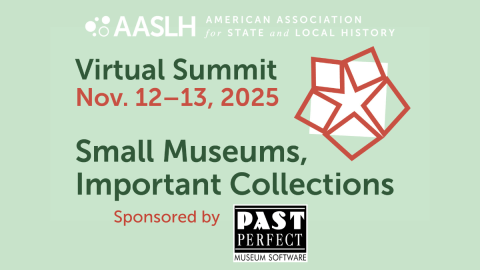
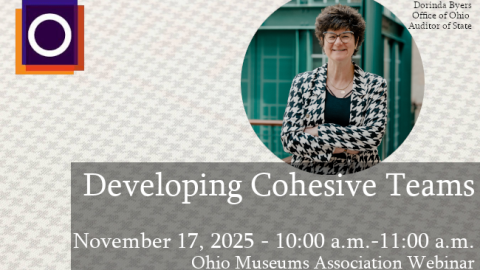


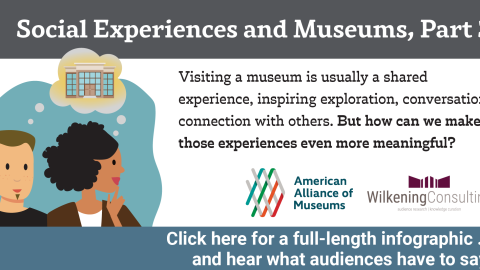
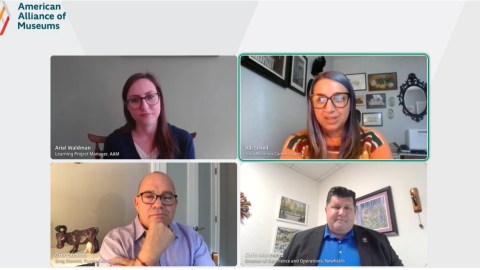

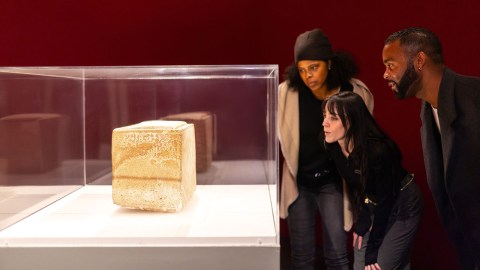
I was sorry to be unable to attend this timely meeting about deaccessioning. The topic has long been a concern and I have written about it often over the years. How great that the title drew upon the cookie jar analogy I gave him at a workshop we did years ago. That panel included a representative of Sotheby’s. having the commercial sector involved in these talks is always beneficial. The summary of December’s meeting is heartwarming. the measures outlined are excellent. I believe it marks the first time the AAM has seriously considered practical mechanisms to control, pre-empt, or guard against the destructive removal of collections. As the conversation continues I hope the book I wrote on the subject will be helpful. Rowman & Littlefield is publishing it this spring. Kudos to all!
Steven Miller
Executive Director Emeritus, Morris Museum, Morristown, NJ
Doylestown, PA